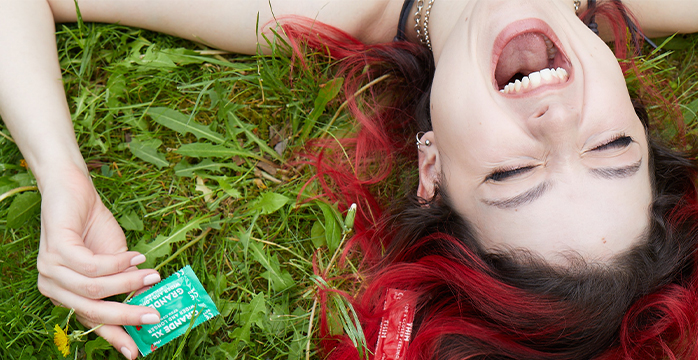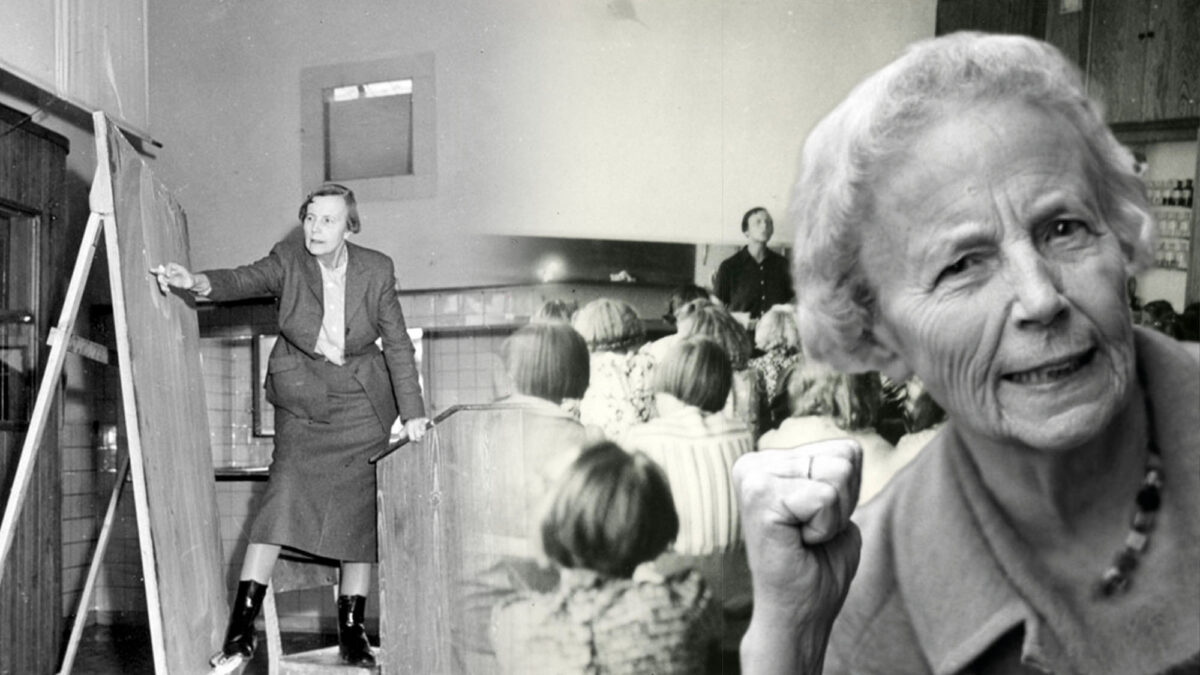
Elise Ottesen-Jensen – the pioneer behind RFSU
RFSU works for the freedom of everybody's right to decide their own sexuality, to choose who they have sex with and if and when they want to have children. Today, all these rights may seem obvious, but many people have had to fight hard for the freedom we have today. One of them was the founder of RFSU, Elise Ottesen-Jensen.
What Sweden was like in the 20th century
Today, Sweden is a pioneer when it comes to sexual freedom. But this has not always been the case.
In the beginning of the 20th century, sex was something confined to marriage, homosexuality was forbidden, contraception barely existed, and contraceptive education was forbidden. Which meant knowledge of how to protect yourself against unwanted pregnancies and sexually transmitted diseases was non-existent. Condoms could only be imported and sold by a few institutions and abortion was illegal.
The restrictions and ignorance created a negative spiral, especially for women in society.
Many married women suffered from being unable to protect themselves against repeated and frequent pregnancies. Their bodies were exhausted by childbearing, but they had neither knowledge of nor the access to contraceptives to protect themselves from unwanted pregnancies. Unmarried women who became pregnant and chose to have an illegal abortion were taking a huge risk, as the procedure could physically harm the woman and even end in death. In addition, abortion was against the law and could result in legal penalties.
One woman decided to take up the fight against this outdated view of sex. Her name was Elise Ottesen-Jensen.
Who was Elise Ottesen-Jensen?
Elise Ottesen-Jensen was born in 1886 into the Ottesen family in Højland outside Stavanger, Norway, where her father was a pastor. Elise was the 17th of 18 children. Her mother was burdened with so many pregnancies and births, and some of the children died before adulthood.
When Elise’s younger sister Magnhild was 16, she had a secret romance with a boy next door and became pregnant. Magnhild having a child out of wedlock was unthinkable in their strict Christian home and their father solved the problem by sending Magnhild away to Denmark. She was isolated in a different pastor’s family and had to give birth without any relatives by her side. Magnhild’s newborn girl was put up for adoption immediately after birth. Magnhild was rejected by her father, but Elise continued to see her little sister secretly.
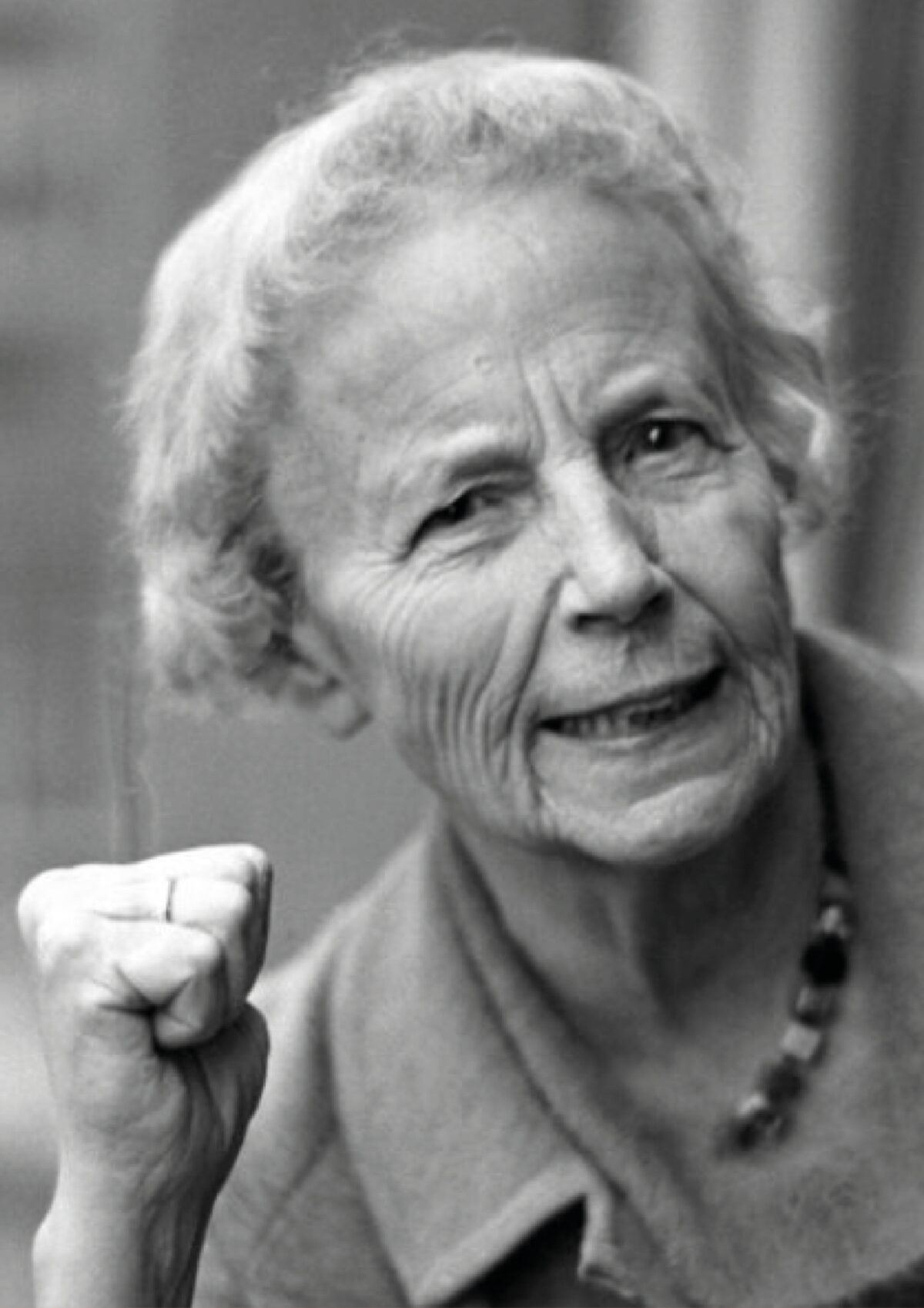
What made Elise Ottesen-Jensen so passionate about sexual politics
The pastor and his family’s cruel treatment of Magnhild’s illegitimate pregnancy affected Elise deeply. The injustice Magnhild endured led Elise to become involved in civil rights issues as a journalist in Oslo.
In time, Elise began to write more and more about women’s issues and sex education, and in 1914 Elise’s first article about sexual issues was published – a subject very controversial at the time. But Elise was a brave woman and passionate about the right to sexuality education. The issue of sexual rights would become Elise Ottesen-Jensen’s legacy.
Elise’s fight for sex education
In 1914, Elise Ottesen also met the Swedish political journalist Albert Jensen, and the couple settled in Sweden.
In Sweden, Elise continued her fight for women’s rights through her opinion columns and educational work under the pen name Ottar. Elise was convinced that knowledge was the only way forward for women’s rights, so she began traveling around Sweden – educating people about contraception, even though it was illegal. Elise informed poor women and men about how to protect themselves against STIs and unwanted pregnancies – in barns and community centers, but also in people’s kitchens and gardens. Elise Ottesen-Jensen’s sex education became a model for sex education in schools, and still inspires us to this day.
Read more about Elise Ottesen-Jensen’s work here.
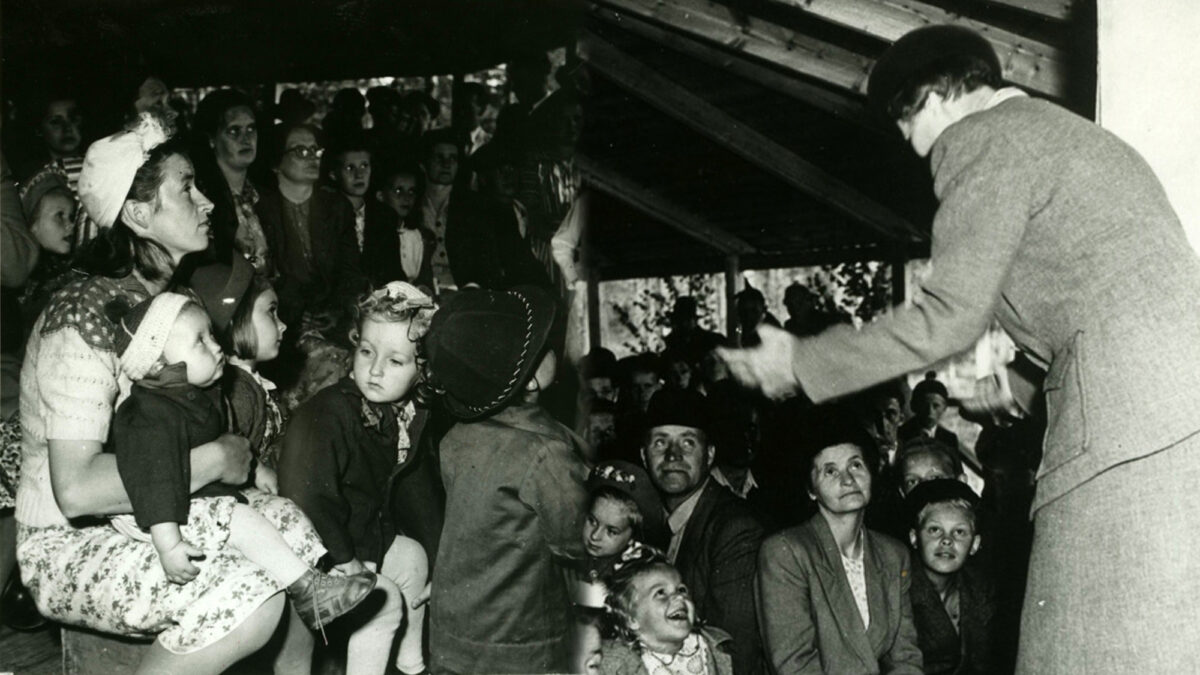
Elise Ottesen-Jensen filled the seats when she lectured about sexual health in Sweden in the 1920s. Even though providing information about contraception, venereal diseases and the ban on abortion was illegal, Elise bravely defied the consequences.
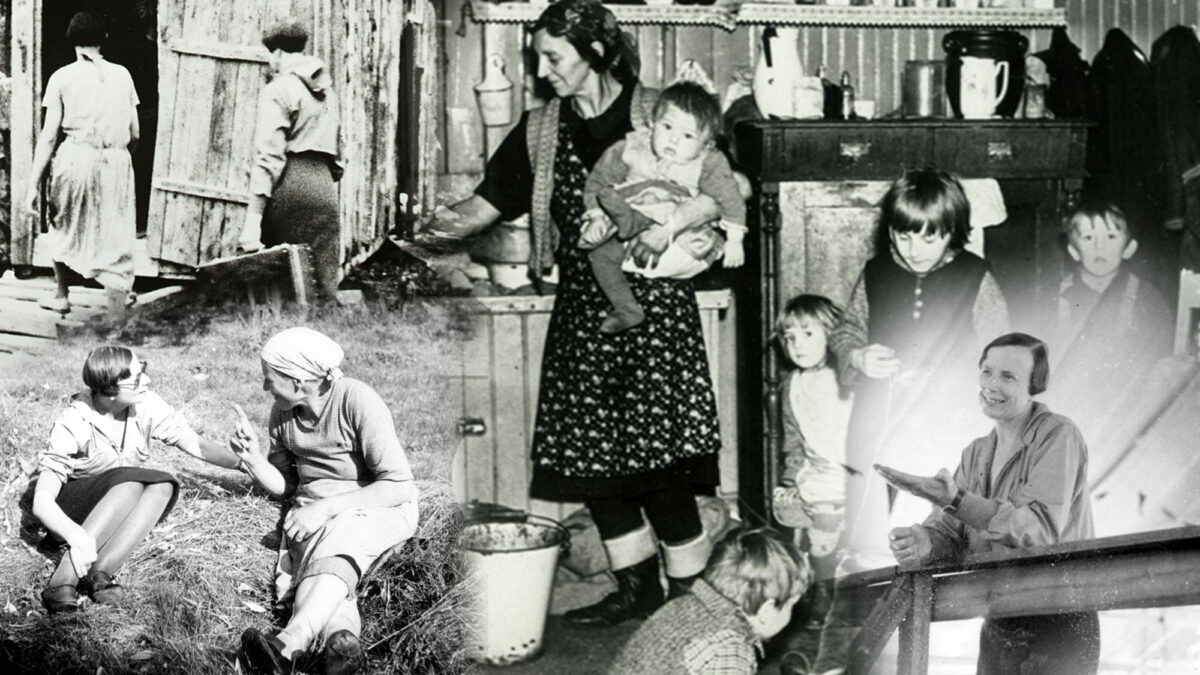
During Elise Ottesen-Jensen’s travels through Sweden to raise awareness about contraception, she helped almost 2,000 women try out diaphragms. Often, these were tested in very primitive conditions – behind curtains, in barns or in the middle of the kitchen floor.
I dream of the day when all children born are welcome, all men and women are equal, and sexuality is an expression of intimacy, love and pleasure. Elise Ottesen-Jensen, founder of the RFSU.
When was RFSU founded?
During the years Elise Ottesen-Jensen worked with sex education, she acquired a large network of contacts not just in Sweden, but also internationally. She realized early on that many people needed to get involved to succeed in creating real change, which inspired her to found a democratic membership association where the members themselves would run the activities locally. In 1933, the National Association for Sexual Education (RFSU) was founded.
According to Elise, education was the only way to change the law and the founding of RFSU opened up the debate on sexual policy. During RFSU’s first years of operation, several reforms were pushed through:
- In 1936, RFSU set up the Rådgivningsbyrå (advisory agency) where questions about contraception, abortion options, impotence, frigidity and infertility were answered.
- The ban on condom imports was lifted in 1937 and RFSU opened an RFSU Store where they sold condoms, among other things.
- The ban on contraceptive information was lifted in 1938 and a new law was introduced allowing abortion under certain conditions.
Read more about the reforms that RFSU has helped to achieve here.
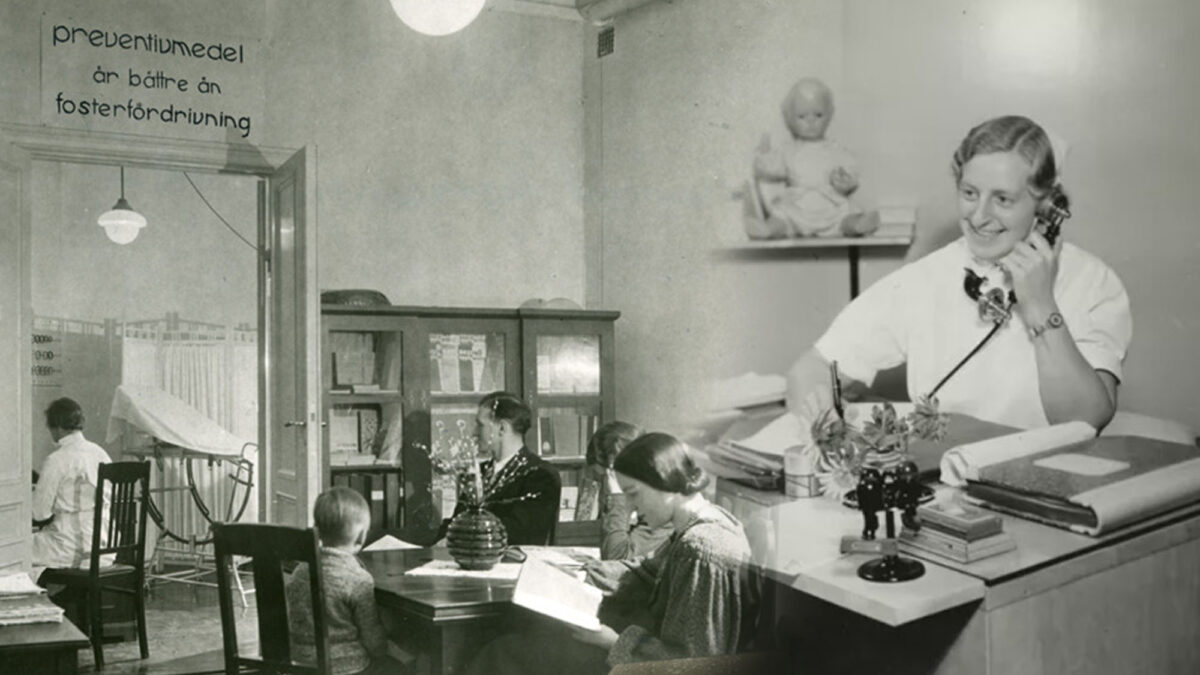
Elise Ottesen-Jensen and two doctors ran a clinic at the Rådgivningbyrån (the advisory agency) for an hour each week. Visitors who could afford it paid for the advice, while others could come for free. The first advisory agency opened in Stockholm in 1936, while midwife Gertrud Krägh-Karlsson answered more than 3,000 letters from both men and women around the country in the first year.
When did RFSU start selling condoms?
The work of RFSU for education, justice and change faced strong resistance, and its sexual policy reform efforts required funding. When the ban on condom imports was lifted in 1937, RFSU set up a joint stock company and began selling condoms.
But it was not until 1970 that it became legal to sell condoms without special permission from the police.
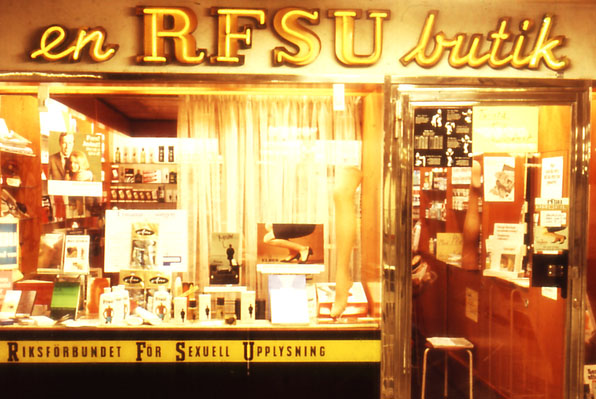
How does the RFSU business model work?
The business model of RFSU, with a for-profit company that sells sexual health products and whose profits enable RFSU to independently pursue its sexual rights work, is the same today as when Elise Ottesen-Jensen and her colleagues started selling condoms in 1937.
“Today, a lot of people know about RFSU, not least in connection with our products,” says Anette Otterström, Brand & Communication Manager at RFSU AB. But few know the story of Elise, why she started RFSU and what she managed to achieve.
What Elise Ottesen-Jensen managed to achieve
Elise Ottesen-Jensen worked for and led RFSU until 1967. When she passed away in 1973, Sweden had changed for the better.
- The ban on homosexuality had been lifted in 1944.
- Abortion had been allowed with special permission since 1938.
- Sex education had been obligatory in schools since 1955.
- Contraceptives could be sold without special permission from the police since 1970.
- Midwives were allowed to give contraceptive advice since 1972.
- In 1974, one year after Elise’s death, Parliament passed a new abortion law giving women the right to decide for themselves whether to have an abortion up to week 18.
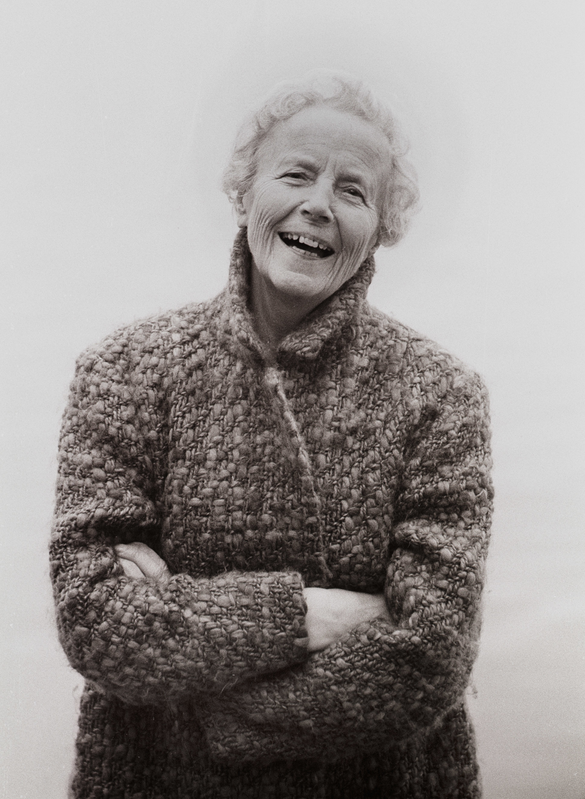
“Every time you tell the story, it becomes so clear, both to the listener and for those telling the story about Elise’s life’s work, that today we take a lot for granted when it comes to sex education and sexual rights, and that there’s so much that we can thank Elise for,” says Anette Otterström.
Read more about how RFSU’s business model makes a difference.
The acronym SRHR stands for sexual and reproductive health and rights. Sexual rights mean that all people have the right to control their bodies and sexuality. Reproductive rights include access to contraception and sex education, and the right of women to decide on the number of children they want to have.
References: RFSU, Swedish Women’s Biographical Dictionary, Ottar & Kärleken (Gunilla Thorgren).



